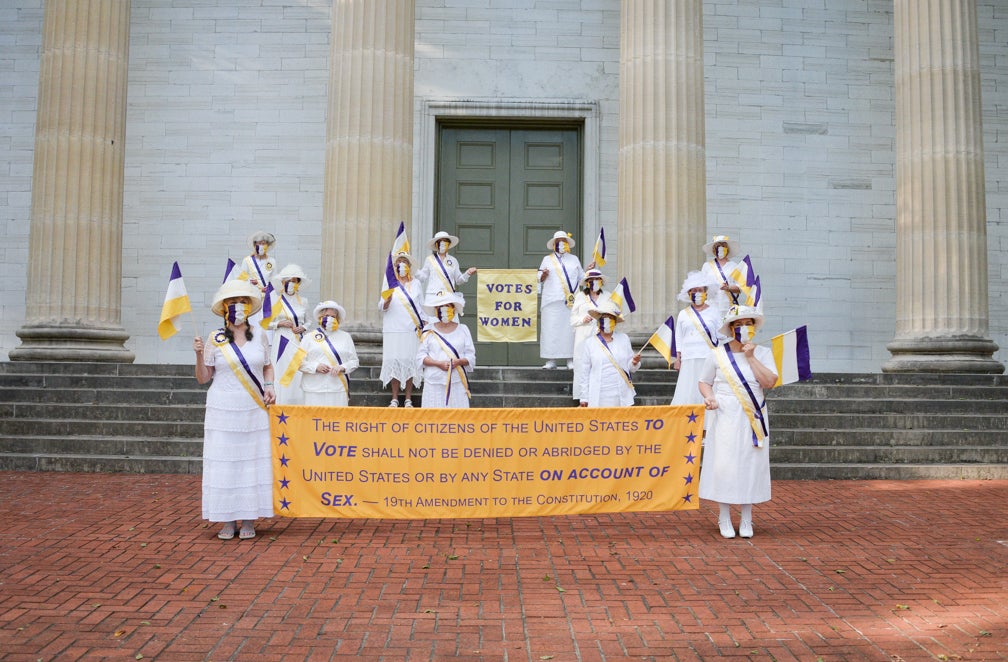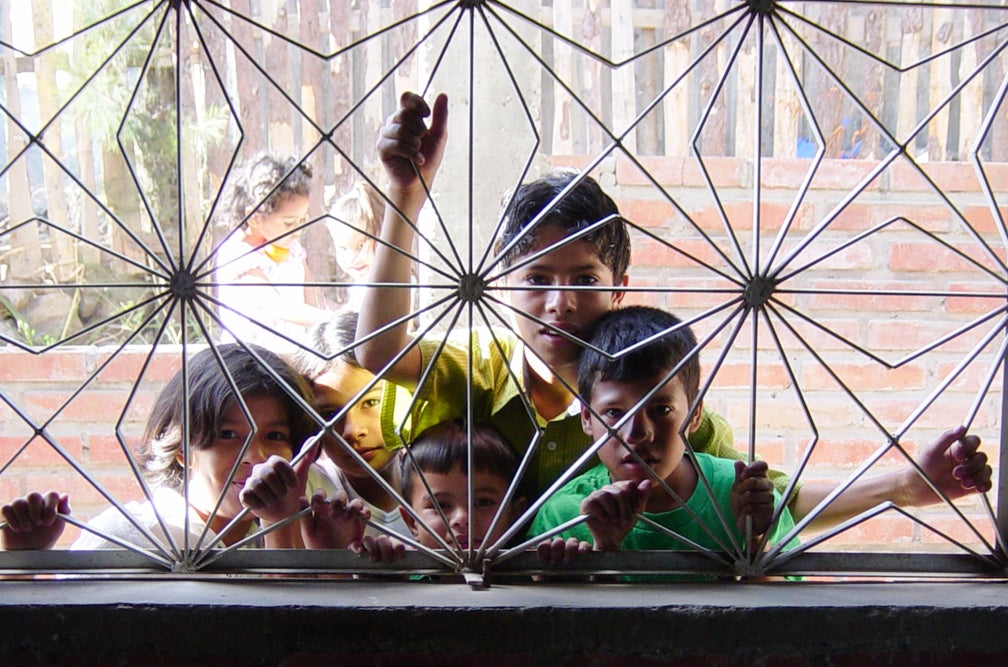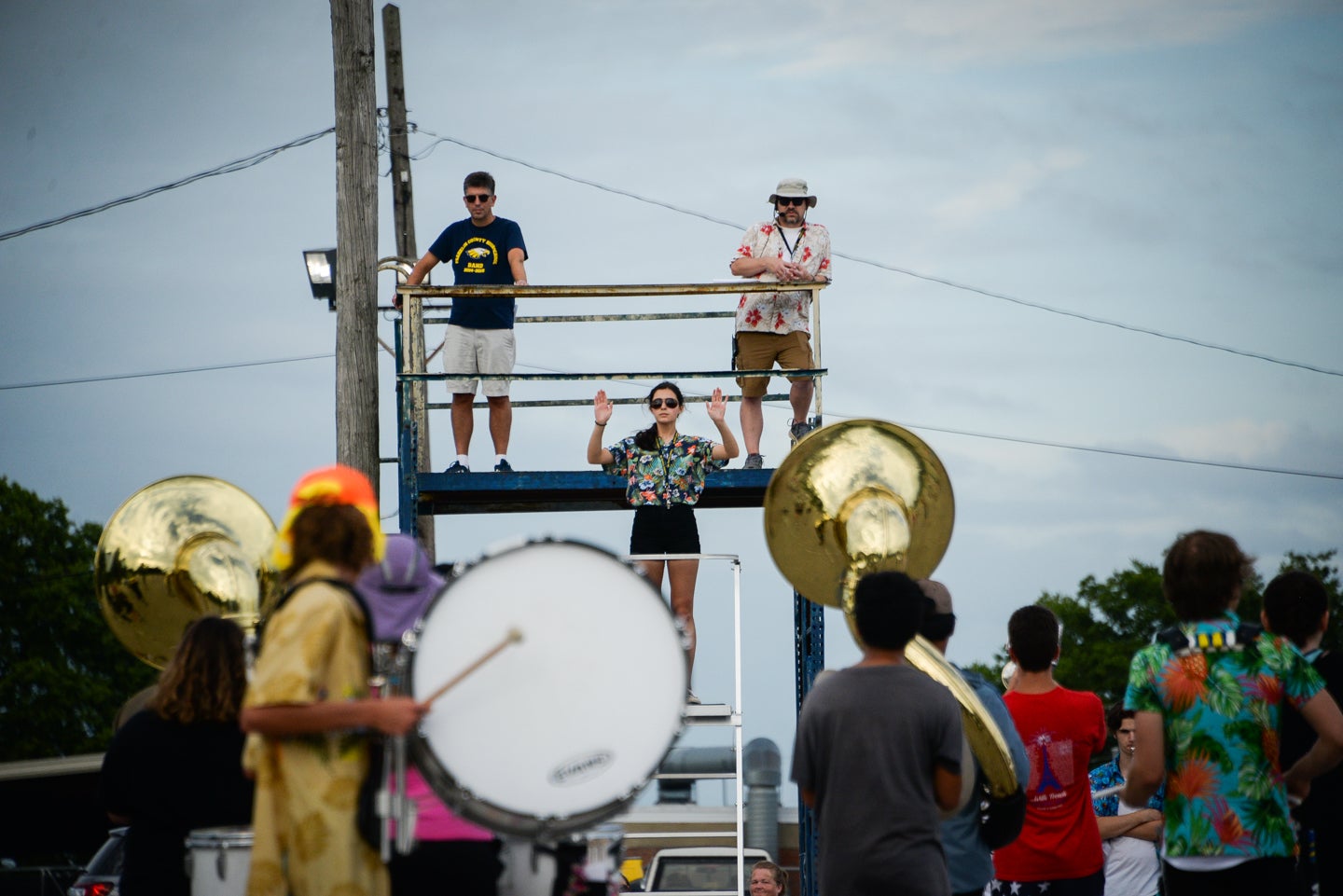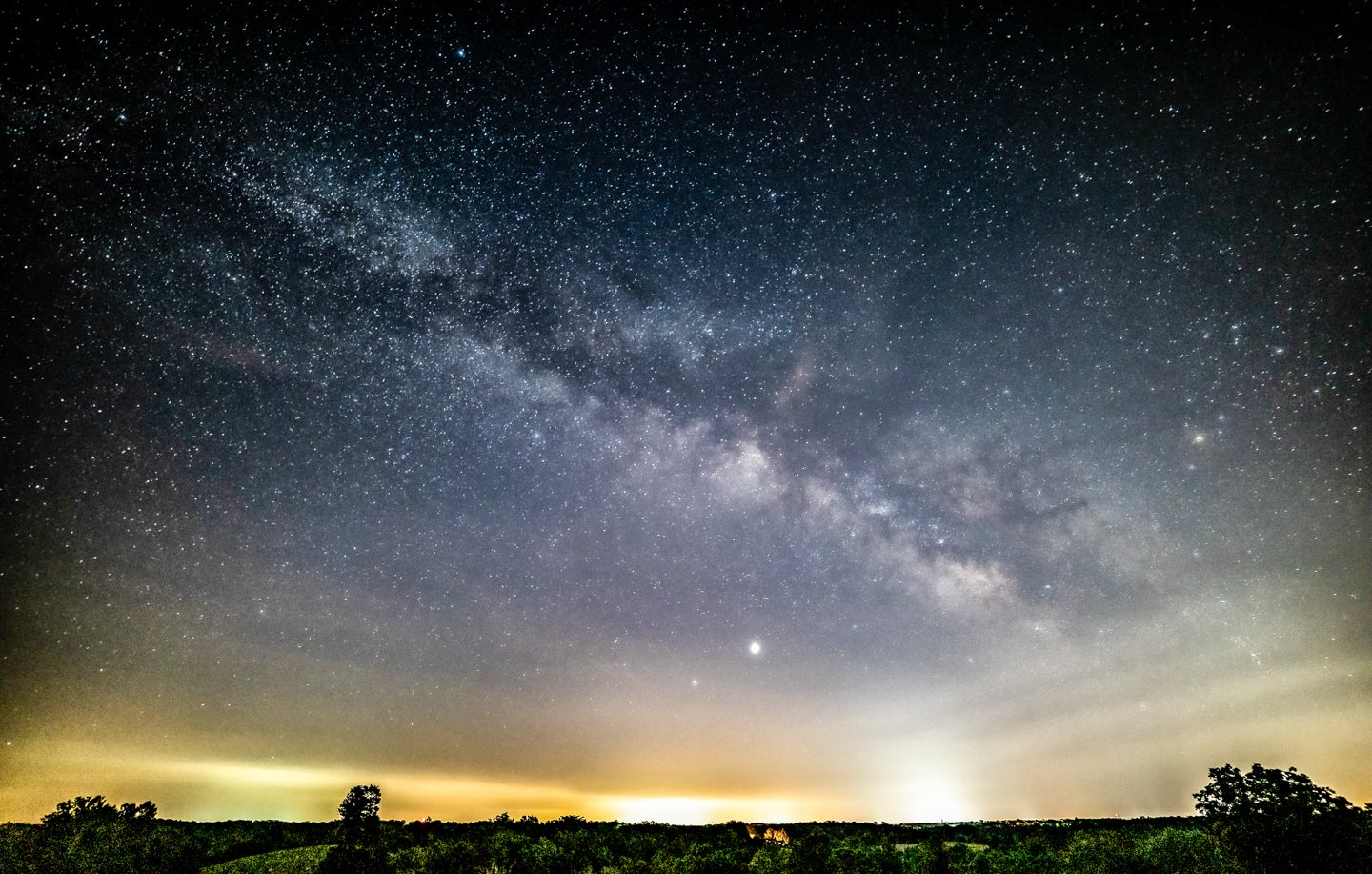This year marks the 100th celebration for women’s right to vote, and a group of 16 women have been preparing to celebrate it since 2014.
However, because of the coronavirus pandemic, the ladies of the Women’s Suffragist Centennial Chorus will have to wait another year to celebrate the 19th Amendment.
The group has been getting together since 2014 to learn more about the suffragette movement, said Sylvia Coffey, one of the group’s organizers. Starting in 2018, she said, they started singing the songs some of the suffragists used during their protests.
Originally, the Suffragist Chorus had planned on singing songs of the suffragette movement during the Kentucky Women’s Suffrage Centennial March on Aug. 22 in downtown Frankfort, but the city of Frankfort canceled the march due to the coronavirus pandemic.
Over the past two years, the group has performed at various events around the state, like stopping at the National Quilt Museum to perform during the “HERstory” exhibit, and celebrating the day, Jan. 6, 1920, that Kentucky ratified the 19th Amendment to the Constitution of the United States.
The 1890s to 1920 were a turbulent time for women. Without the right to vote, they had little voice in the laws of the country. Women across the country worked with legislators and politicians to change laws. In Kentucky, the Married Women’s Property Act passed in 1894 that allowed married women to own property, enter into contracts, inherit money independently of their husbands, work for a salary and write wills.
In 1919, with the blessing of President Woodrow Wilson, Congress passed the 19th Amendment, guaranteeing the right of women to vote. For the next year, states across the country had to ratify the amendment. When Tennessee became the last state needed to ratify the amendment (the deciding vote of which was cast by Harry T. Burn — a 24-year-old legislator who was set to vote against the amendment, until his mother urged him to vote in favor of it — it was sent to Washington, D.C., where it was signed into law by U.S. Secretary of State Bainbridge Colby
And throughout the process, women protestors sang songs to let people know what they wanted. Many took popular songs and rewrote the lyrics like this one “Dare You Do It” sung to the tune of the Battle Hymn of the Republic:
“Ye men who wrong your mothers,
And your wives and sisters too
How dare you rob companions
Who are always brave and true?
How dare you make them servants
Who are all the world to you?
As they go marching on…Men and brothers, dare you do it?
Men and brothers, dare you do it?
Men and brothers, dare you do it?
As we go marching on!”
“The words are what we really want people to hear,” she said. “The women had a message. And that shared some of it through song. That’s what we’re doing.”
Those words, and the women who sang them, said group member Joyce Albro, give women and girls today someone to look up to.
“People need heroes. Men have all kinds of heroes — warriors, cowboys, civic leaders. Women have known our mothers and grandmothers were noble honorable people, but women’s stories have not been told,” she said. “It is hard to know why, but we know it is true. So we sing to tell the stories of the women upon whose shoulders we stand. Women whose hard work and sacrifice help us know that we can earn our own living, chart our own course and have influence in our own lives.”
Since the outbreak, the group’s practice sessions have stopped, said Coffey.
“(COVID-19) stopped everything cold,” she said. “It’s like you know when the governor said we’re closing down, we stopped. We had to. We haven’t seen each other in … months.”
But it hasn’t bridled their passion for the project, she said.
“We haven’t put anything in place but even if it’s just 16 of us, I would like for us to do something, even if we have to be 6 to 8 feet apart,” Coffey said. “Right now, we’re just going to do it next year. It will just be the 101-year celebration, instead of 100 years. And, we can celebrate without being harmful to anybody or taking unnecessary risks.”
And it’s important that the anniversary does get celebrated, said Nancy Watkins. Watkins said she felt a kinship with the suffragists.
“I fought for a good education in science and engineering, believing it was the only way for a woman to earn a good salary,” Watkins said. “As a young engineer with two small children, I campaigned with two other like-minded young women for the equal rights amendment in the 70s.
“Since the ERA still has not passed because of the time limit, we are still struggling for equal opportunity. Young women today don’t fully embrace the struggle. They take for granted the improvements women have gained at great cost. That is why a celebration for the centennial of the vote is of paramount importance.”
Lane Lewis said she enjoyed being in the group to learn about “HERstory,” and to connect with a group of women like her.
“Becoming educated about this part of our ‘HERstory’ is quite amazing to me, to be able to share it with others is a gift,” Lewis said. “Looking out at the audiences and seeing shocked expressions let’s me know we are doing a good job.
“During the parades seeing little girls asking their moms and dads who we are, then seeing them kneel down to explain. The connection with the other women in our chorus is a treasure. Stopping at all the Goodwill’s I pass to find white finery ain’t bad either. I am also disappointed in the cancelations, but we will continue to share the ‘HERstory’ when the time is right.”
Along with Coffey, Albro, Watkins and Lewis, the other members of the group are Nancy Atcher, Doraine Bailey, Tona Barkley, Christina Benson, Mary Ann Burch, Judy Catlett, Don Coffey (music director/musician), Peg Harmon, Polly Lakes, Susan McKaig, Brenda Parker, Barbara Hadley Smith and Linda Stopper.
The Women’s Suffragist Centennial Chorus is open to anyone. The group is working to plan a 19th Amendment celebration for Aug. 26. For more information, contact Sylvia Coffey at scoffey7@mis.net.”
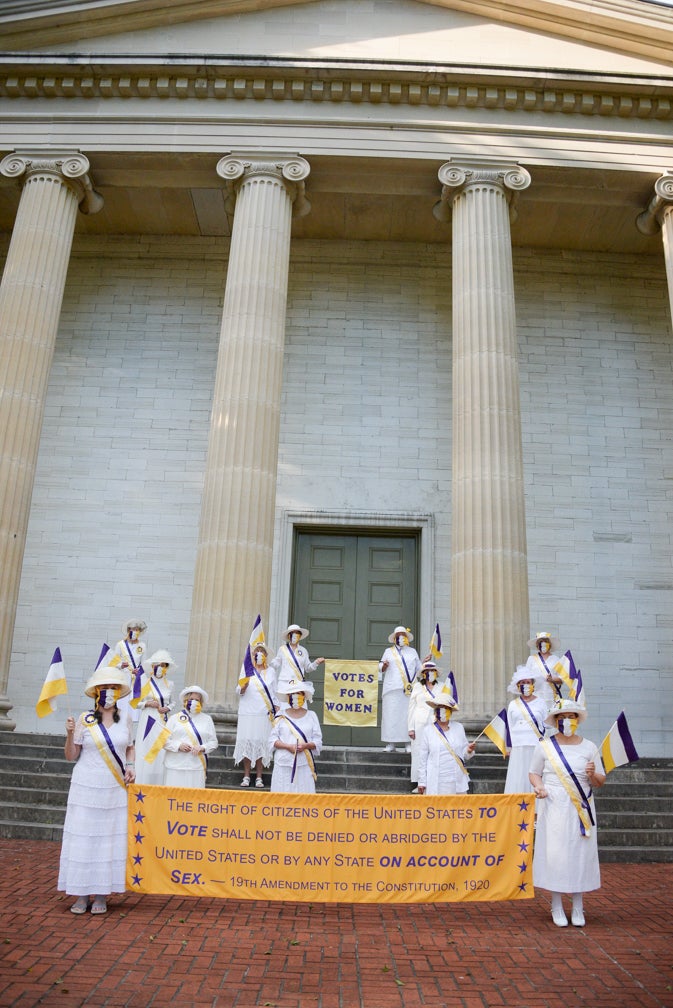
The Women’s Suffragist Centennial Chorus. (Photo by Hannah Brown) 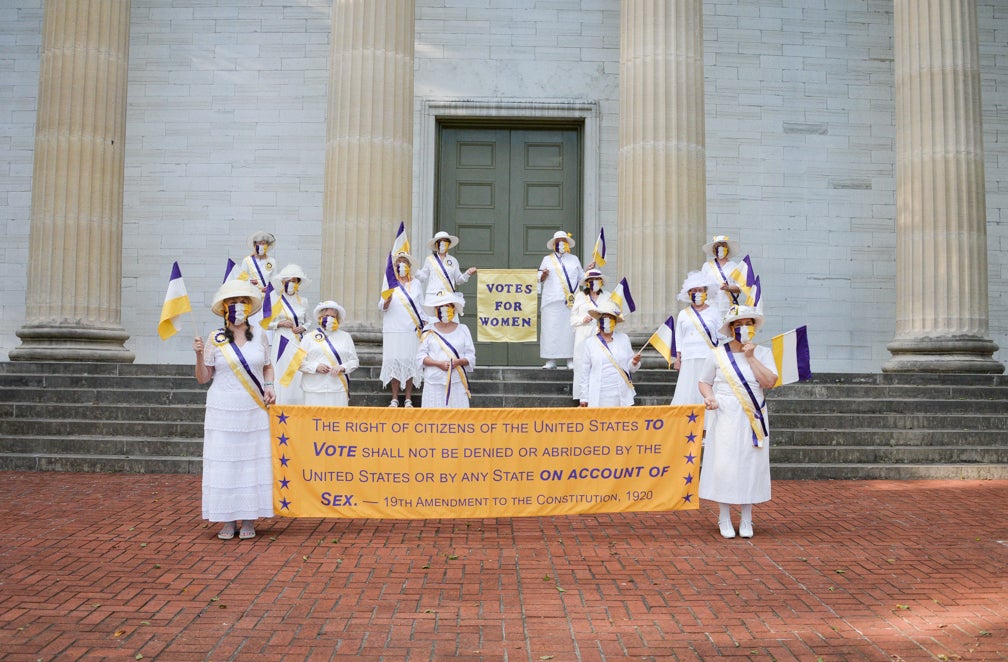
The Women’s Suffragist Centennial Chorus. (Photo by Hannah Brown) 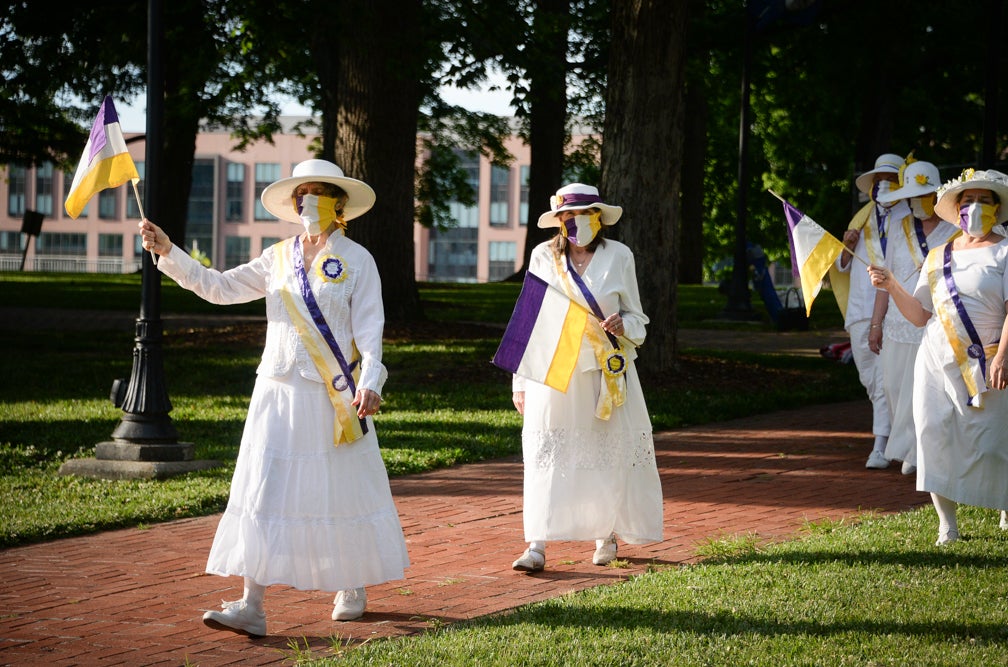
The Women’s Suffragist Centennial Chorus. (Photo by Hannah Brown) 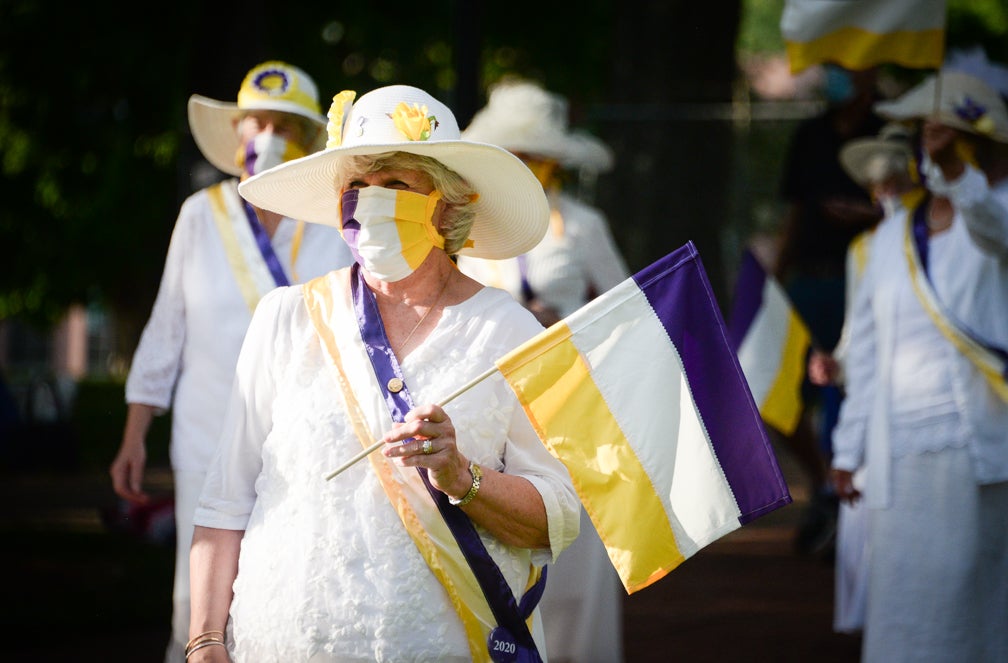
The Women’s Suffragist Centennial Chorus. (Photo by Hannah Brown) 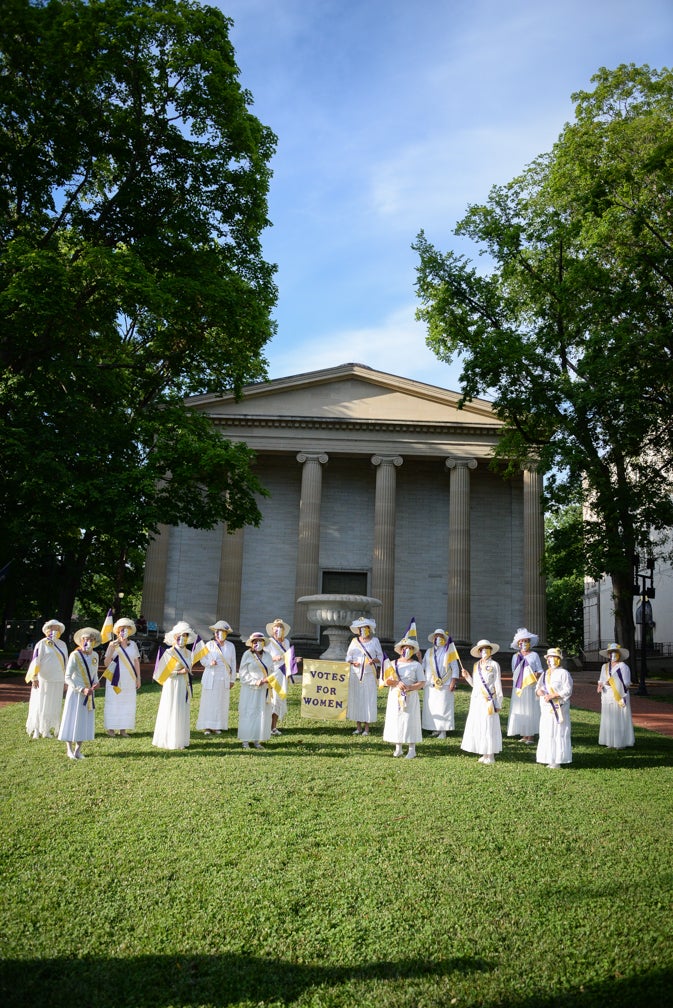
The Women’s Suffragist Centennial Chorus. (Photo by Hannah Brown) 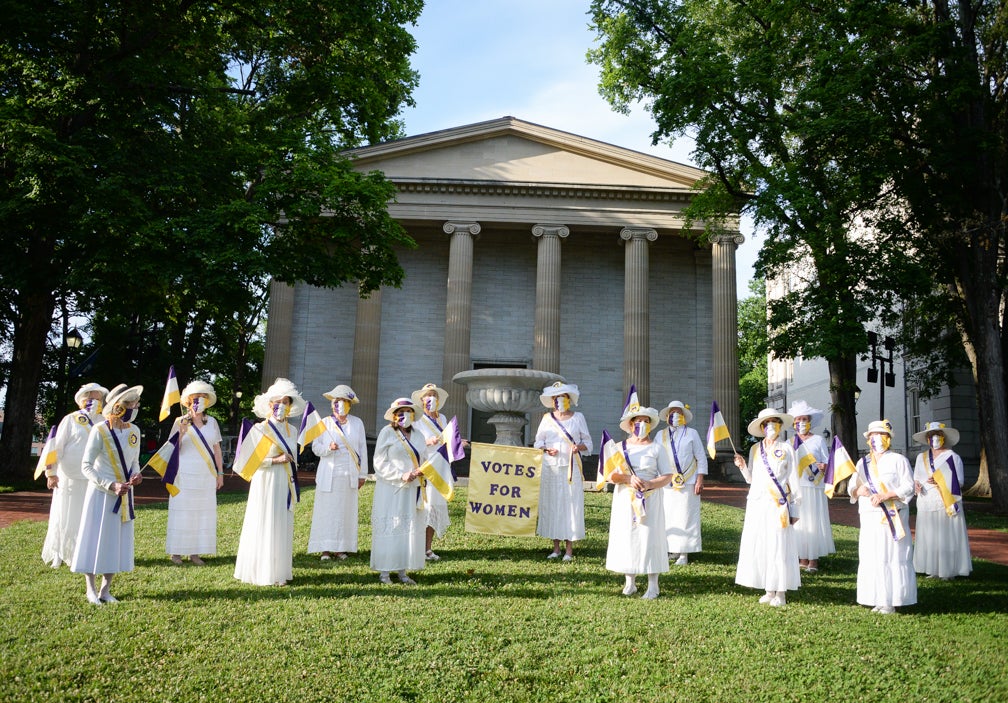
The Women’s Suffragist Centennial Chorus. (Photo by Hannah Brown) 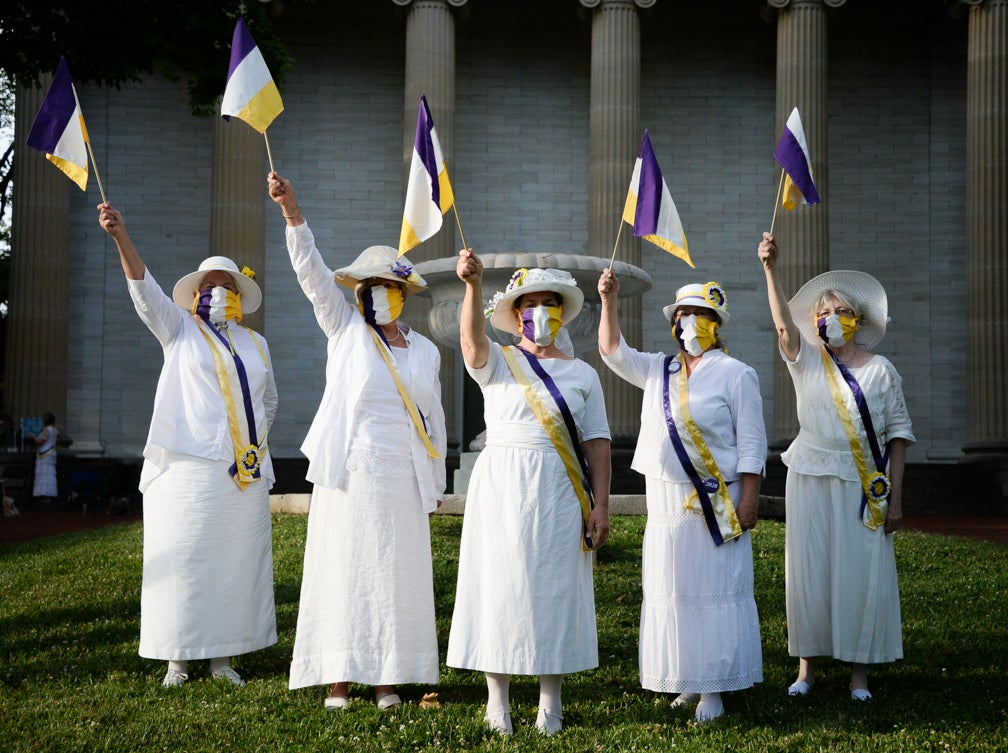
The Women’s Suffragist Centennial Chorus. (Photo by Hannah Brown)

